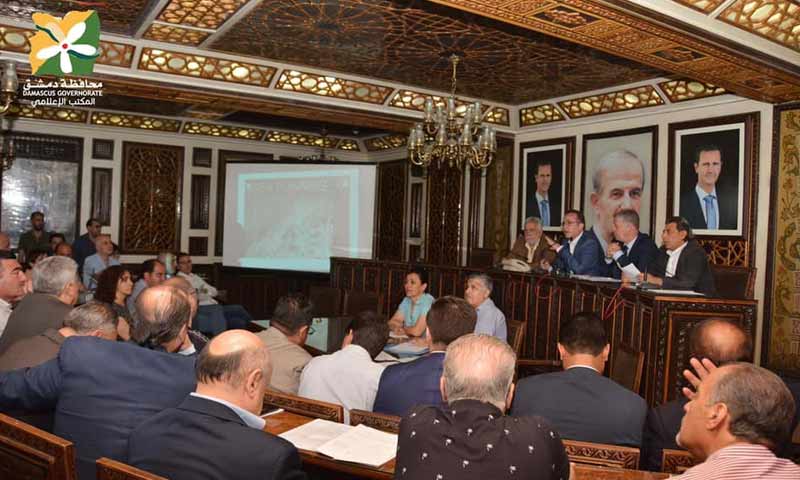



The dispute resolution committees established under Law No. 10 of 2018 by the Syrian regime’s government are considered unconstitutional committees that constitute an encroachment on judicial authority. Any appeal against these committee’s decisions does not guarantee citizens the right to fair judicial proceedings.
Article 14 of Law No. 10 stipulated the formation of one or more committees with judicial competence. Law No. 23 of 2015 also provided for the establishment of such committees.
The committees are responsible for considering all objections, property claims, or infringement of the rights in rem of real properties included in any regulatory zone.
All similar cases of property disputes which were presented to courts without reaching a verdict are referred to these committees.
Such committees are formed within one month, a year after the announcement of a regulatory plan.
This one year is given to the rights holders, their legal agents, or relatives “up to the fourth degree” of family kinship to claim their property rights under Law No. 42 of 2018.
Law No.42 of 2018 came as an amendment to some articles of Law No. 10, as the period of submitting property ownership claims and rights in rem proof was extended from 30 days to one year).
These objections and claims are submitted to the administrative unit, which refers them to the dispute resolution committee.
Then, the committee looks into all objections, property claims, or infringement of the rights in rem whether or not they have been submitted within the time limit of submitting property claims or the “rights in rem.”
Other property-related issues that were not finalized by courts are referred to the dispute resolution committees.
Right holders who have not submitted their objections to the dispute resolution committee have the right to present their claims to ordinary courts after the judicial committees finish their tasks set in Law No.10.
The dispute resolution committees are formed under the decision of Damascus governor, and they include the following figures:
The representatives of the Directorate of Cadastral Affairs and Damascus governorate should have at least a ten years’ state service following the receiving of their law degree.
The Syrian Law has given these committees all the powers of courts responsible for solving similar issues, such as resolving disputes and considering property claims submitted or referred to them.
These committees have full judicial powers; they are exempted from fulfilling the provisions of Syria’s Civil Procedure Code and issue their decisions in the name of the Syrian people.
It is worth mentioning that the formation of these committees from one judge and two executive power members is an explicit violation of the judicial authority, as the Syrian Constitution stipulates in article /51/paragraph (3) and (4) that:
-The right to conduct litigation and remedies, review, and the defense before the judiciary shall be protected by law, and the state shall guarantee legal aid to those incapable of doing so in accordance with the law.
-Any provision of the law shall prohibit the immunity of any act or administrative decision from judicial review.
Nevertheless, if these committees were established to speed up the resolution of disputes over real property rights in the regime-controlled areas, they should have included three judges to ensure that their decisions are made by competent judges that represent the judicial authority.
On the other hand, individuals can challenge the committees’ decisions before the Court of Appeal in the governorate, according to specified dates and procedures similar to appealing against the interim relief judge’s rules.
The Court of Appeal in its deliberation room shall decide in the appeals with final decisions, thus depriving people of presenting their defenses before the Court of Appeal, which may adversely affect citizens’ rights.
It is worth emphasizing that private property is protected in the Syrian Constitution. It is one of the fundamental rights of individuals guaranteed by the judiciary, the power responsible for establishing justice and returning rights to their lawful owners.
if you think the article contain wrong information or you have additional details Send Correction